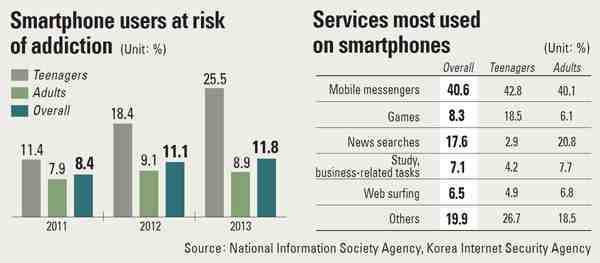Smartphone is a brilliant piece of technology, so it’s no surprise to see teens, like us adults, in complete awe of it. Maybe that is why we didn’t see any real reason to worry over Pew Research Center’s report from last year which revealed that 73% of teens have an access to smartphones. For so many years, we have quietly watched our youngsters play with this fascinating product of innovation, thinking little of its effects, if any, on them. They kept asking for it, and we kept on obliging until the awe turned into lust before turning into a full-fledged addiction, thus making it cancerous for their physical and mental development.
Some call it negligence, others say it’s a convenience, but almost everyone who is even remotely aware of the reality and magnitude of what has transpired right under their nose agrees that it’s disastrous. It was happening right before our eyes, and yet we did absolutely nothing to stop it. In fact, did we even notice?
Caged and Consumed
All the calls for policing the digital lives of kids and limiting their screen time through parental control solutions like SecureTeen are not unwarranted. It has been established through various researches and polls that it’s unwise to trust kids with unsupervised access to a smartphone. The reason for that isn’t simply excessive mobile gaming featuring violent content, but arguably something even worse.
Smartphone privileges at an early age create all sorts of opportunities for teens to put their safety, reputation, and even life at risk, be it intentionally or inadvertently. The fact that nearly three-quarters of teens have an access to smartphones certainly doesn’t help. In order to carve a place for themselves among their peers or attract the attention of the opposite gender, they engage in acts that are inappropriate to say the least, and then share evidence of these acts online or via chat apps. It includes but may not be limited to:
- Underage drinking
- Drugs
- Smoking
- Sexting
- Dangerous stunts
- Uploading revealing photos
- Swearing
Smartphones make it easier than ever for them to flaunt their coolness and become prominent. Moreover, they are smart enough to keep all this hidden from us elders in order to avoid lectures, warnings, scolding, or even revocation of smartphone privileges.
That, unfortunately, is not all.
Finding a teen staring into the screen of their smartphone is a sight that we have become all too accustomed to. After all, that’s part of the youth culture, right? What we often fail to realize is that it’s not really a teen holding a smartphone, but rather a teen trapped inside a smartphone. 91% of the teens with a smartphone go online at least once daily, but the number of hours they spend online on average is what’s really worrisome. For them, it’s a bitter-sweet setting. On one hand, it’s an easy ticket to fame, friends, and fun, but on the other hand, it places them under an immense amount of stress, the unhealthiest of its kind. They constantly worry about the reaction their recently shared status or photos get on Facebook or find themselves comparing their seemingly dull lives with the happening lives of their online friends after looking at their exciting pictures and statuses in the News Feed.
Instagram and Snapchat only add to the adverse effects of smartphones on them, as the more time they spend on these platforms, the more depressed they feel thinking that they are losers with nothing exciting in their life, and become increasingly conscious of their perceived physical imperfections.
The use of smartphones is even believed to be taking a toll on teens’ cognitive development, though more research is being done on it to confirm if there really is any concrete connection between the two.
Time to Confess and Make Amends
It’s so tempting to go into denial upon being probed about our role in the toxic romance between teens and smartphones, but running away from facts serve no purpose. Our youngsters need saving, and the only way to free them of their digital handcuffs is to accept responsibility for easing them into this mess in the first place. It was us who used smartphones as a pacifier. It was us who used them as a distraction. It was us who used them as a tool to get our kids to listen to us. It offered us parenting shortcuts, and we gladly took them. Did we really stop to think about the implications of adopting these shortcuts? Did our desire for convenience and instinct to keep our kids happy cloud our better judgment? Were we even attentive while smartphones gradually strangled our kids, stripping them of their safety, security, freedom, and peace in the process?
In order to effectively deal with the dire situation at hand, we must realize where and how we erred. The confession of our mistakes is certainly the first and most crucial step in launching an effective campaign for uprooting the digital woes from the lives of our younger generation. With smartphones deeply integrated into the youth culture, our job of undoing the mess we have created is unlikely to prove to be an easy task. Perhaps we should not even aim for the impossible, i.e. disconnecting them from the smartphones completely. Instead, we should keep our sights on a more realistic goal. Small gains like getting teens to look up from the screen in their palms more often can go a long way in making a difference and setting the foundation for a better tomorrow, if not for them, then at least for the generations to come.


